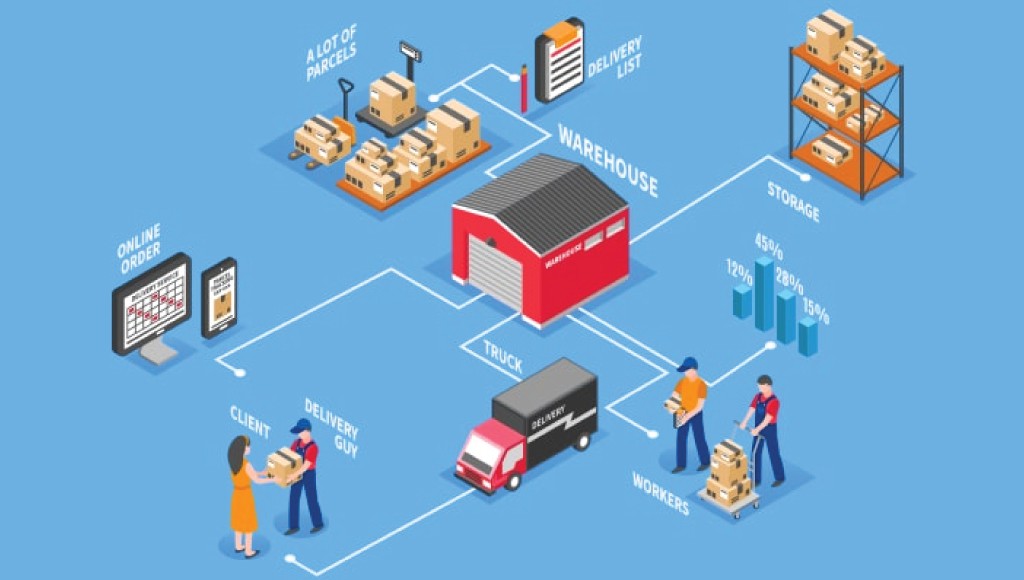Introduction: A Paradigm Shift in Retail
The rise of e-commerce has ushered in a new era, fundamentally transforming the landscape of retail. As consumers increasingly prefer the convenience of online shopping, businesses must adapt their logistics strategies to meet these evolving demands. In this blog post, we will explore the multifaceted impact of e-commerce on modern logistics. We will delve into the complexities of e-commerce logistics, the influence of consumer behavior, the technological advancements reshaping the industry, and the challenges that accompany this rapid transformation.
The relationship between e-commerce and logistics is symbiotic; as e-commerce grows, so too does the necessity for innovative logistics solutions. The modern logistics industry is now adapting to an intricate web of supply chain management, fulfilling customer expectations, and navigating logistical challenges, all while striving for optimization. From last mile delivery to automated systems, the landscape is continuously evolving. In this blog, we dissect various aspects that illustrate the undeniable impact of e-commerce on logistics.
E-Commerce Growth Statistics — A Driving Force
E-commerce has experienced exponential growth over the past decade. According to recent statistics, global e-commerce sales reached approximately $4.28 trillion in 2020, with forecasts suggesting these figures will continue to soar. This surge in online commerce creates a ripple effect throughout the entire logistics sector. Retailers and manufacturers must prepare for increased demand, altering their logistical operations accordingly.
Consequently, businesses are witnessing a pivot towards direct-to-consumer models. This approach not only eliminates intermediaries but also emphasizes the importance of efficient logistics solutions. Many firms now prioritize e-commerce logistics as a core component of their operational strategies, recognizing that logistical efficiency directly impacts customer satisfaction and overall profitability.
The Essence of E-Commerce Logistics
E-commerce logistics encompasses all operations involved in moving goods from sellers to buyers. This includes inventory management, warehousing, order fulfillment, and last mile delivery. The complexities of this model have led to the emergence of specialized logistics frameworks tailored to the online shopping experience.
Moreover, the nuances of online shopping logistics have prompted companies to optimize their supply chain management. Firms now place a greater emphasis on speed and accuracy in fulfillment centers, which act as distribution hubs between suppliers and consumers. By refining these processes, businesses can enhance customer satisfaction, supporting the broader implications of e-commerce growth statistics.
Trends in Modern Logistics — Embracing Change
Modern logistics trends increasingly reflect the needs of the contemporary e-commerce marketplace. Companies are investing in logistics technology to facilitate smoother operations and improve efficiency. For instance, the integration of artificial intelligence (AI) and machine learning algorithms enhances inventory management, allowing businesses to predict demand more accurately.
Furthermore, the demand for rapid shipping solutions is escalating. Many consumers expect their purchases to arrive within days, if not hours. As such, businesses must adapt by adopting agile transportation management strategies and expanding their fulfillment networks. Efficient last mile delivery has become a critical focal point, as companies strive to improve the speed and reliability of their logistics processes.
Logistics Challenges — Navigating the New Landscape
Despite the opportunities presented by e-commerce, businesses encounter several logistics challenges. As the volume of online orders increases, the complexity of managing these shipments grows. Companies must contend with issues such as fluctuating demand, seasonal peaks, and the ever-present need for cost efficiency.
Moreover, cross-border logistics introduce an additional layer of complexity. International shipping often involves varying regulations, customs concerns, and increased shipping costs. Businesses must develop robust strategies to address these logistical challenges effectively. Balancing speed and cost-efficiency remains a top priority in this increasingly competitive landscape.
The Importance of Fulfillment Centers
Fulfillment centers serve as critical nodes in the e-commerce supply chain. They help businesses manage inventory, process orders, and facilitate shipping. In a landscape characterized by rapid delivery expectations, the role of fulfillment centers becomes even more pertinent. Effective inventory management in these facilities is essential for ensuring that products are available when consumers want them.
Additionally, fulfillment centers contribute to logistics optimization. By using advanced technology and data-driven insights, these centers can streamline processes, reducing order processing times. As a result, businesses can maintain a competitive advantage in an increasingly crowded marketplace, meeting the demands of consumers while managing operational costs.
Embracing Logistics Technology
The rapid advancement of logistics technology is pivotal for modern businesses navigating the e-commerce landscape. Companies are increasingly turning to automation in logistics to improve efficiency and reduce human error. Robotic systems in warehouses can enhance picking and packing operations, accelerating fulfillment processes.
Moreover, data analytics plays a significant role in logistics management. Organizations utilize big data to gain insights into consumer behavior in e-commerce, optimizing everything from product placement to inventory levels. These technological innovations empower businesses to make informed decisions, ultimately fostering a more resilient and responsive logistics framework.
The Significance of Last Mile Delivery
Last mile delivery, the final step in the logistics chain, is crucial for achieving customer satisfaction. This segment faces unique challenges, including congestion in urban areas and rising delivery costs. Consequently, e-commerce companies must innovate to improve last mile delivery efficiency, leveraging technologies such as route optimization software and crowdsourced delivery services.
Furthermore, businesses are exploring sustainable delivery options, recognizing that environmentally friendly practices resonate with today’s consumers. By integrating green logistics initiatives into last mile delivery strategies, companies can enhance their brand image while contributing to broader sustainability goals. Ultimately, this emphasis on last mile delivery underscores its importance in modern logistics.
Supply Chain Management in the E-Commerce Era
Effective supply chain management is essential for successful e-commerce operations. As online shopping continues to grow, retailers must refine their supply chains to remain competitive. This includes establishing strong relationships with suppliers and logistics partners, ensuring timely product availability and delivery.
Moreover, transparent communication across the supply chain fosters better collaboration and efficiency. Businesses are increasingly investing in digital supply chain solutions, allowing them to track products in real-time and respond swiftly to emerging challenges. By embracing a comprehensive approach to supply chain management, organizations can effectively navigate the complexities of e-commerce logistics.
Strategies for Logistics Optimization
To thrive in the dynamic e-commerce environment, businesses must prioritize logistics optimization. This involves evaluating and refining logistics processes to enhance efficiency and reduce costs. Implementing strategies such as warehouse automation, predictive analytics, and lean methodologies can significantly improve performance.
Additionally, businesses should focus on inventory management strategies that align with consumer behavior in e-commerce. Adapting stock levels to reflect changing demand patterns ensures that companies are prepared to meet customer expectations. By continuously revisiting logistics strategies, firms can achieve sustainable competitive advantages in an evolving marketplace.
The Future of E-Commerce Logistics
As e-commerce continues to evolve, logistics will play an increasingly critical role in shaping the industry. With ongoing advancements in technology, we can expect to see more efficient shipping solutions, enhanced fulfillment capabilities, and innovative approaches to transportation management. As companies embrace the trends of automation in logistics, they will be better equipped to overcome the challenges of a growing e-commerce landscape.
In conclusion, the impact of e-commerce on modern logistics is profound. Businesses must remain agile, continually adapting to maintain relevance in a competitive marketplace. By understanding the interplay between e-commerce and logistics, organizations can position themselves for success in this rapidly changing sector.





